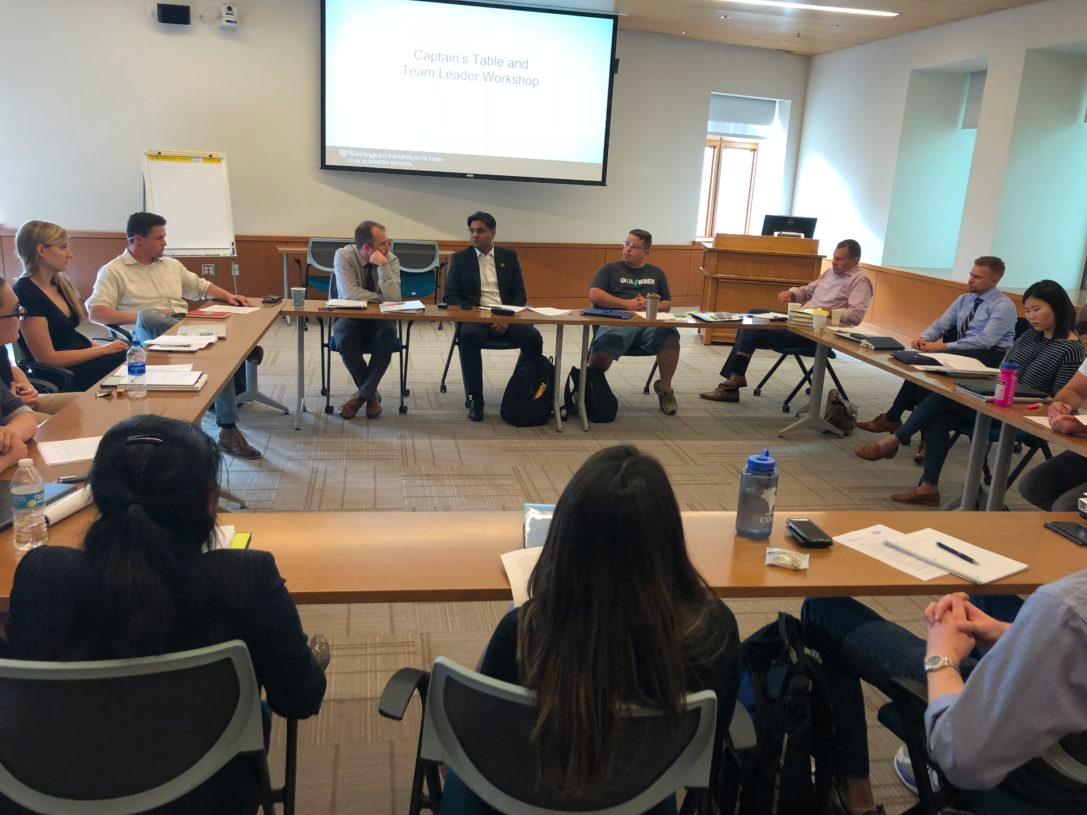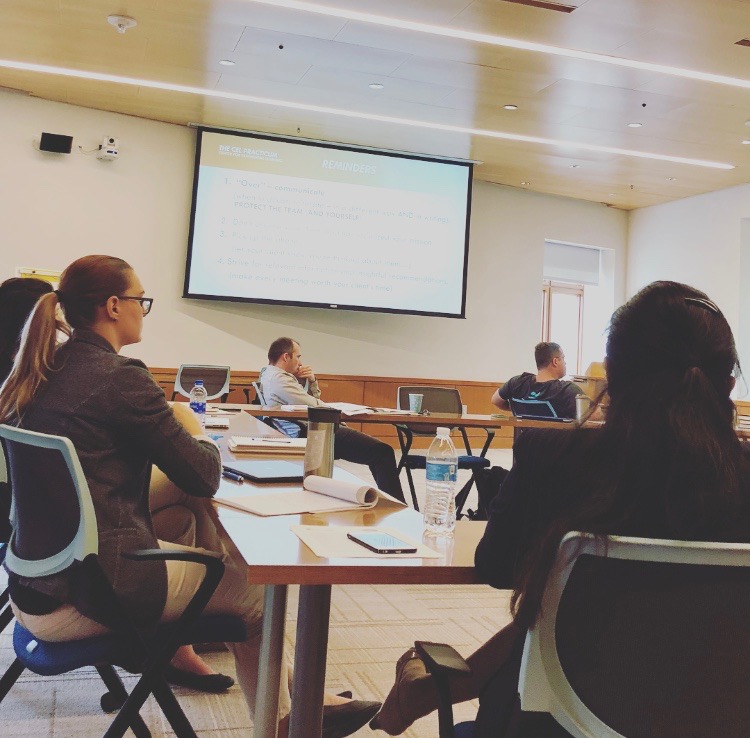From the CEL fellows, three lessons on leadership
- October 12, 2018
- By WashU Olin Business School
- 2 minute read

The Center for Experiential Learning fellows program works to shape great business students into great business leaders. The CEL fellows, an impressive group of MBAs, just met for their second Captain’s Table, where they discussed the challenges and setbacks that come with leading a team.
The group split up to discuss a case that depicts a team leader dealing with a team member who is smart, but unmotivated and disrespectful. Looking to open up the fictional teammate’s untapped potential, the fellows debriefed with Kurt Dirks, vice chancellor of international affairs and Bank of America Professor of Leadership, and drew out the following lessons that focus on values-based leadership.
Communicate expectations early
CEL Director Daniel Bentle quoted George Bernard Shaw: “The single biggest problem in communication is the illusion that it has taken place.”
It’s important to set expectations and set a tone from the beginning. The team leader in the case did set expectations from the start, but she made the grave mistake of not including the team. If you build expectations with your team instead of alone, the expectations will feel more like an agreed-upon team contract than a set of rules to break.
In addition to setting expectations, the team leader should facilitate an understanding of each teammate’s motivation in the project. For example, the disrespectful team member was mainly focused on job searching. If the team lead had capitalized on this information early on, she could have worked to use this information to motivate him. Explaining how the project could be a great conversation topic in interviews or good content for his resume would be a great way to get this team member on board.
Build trust with your team
Building trust with each individual teammate is an essential step toward team success. Conn Davis, MBA ’17, said, “The key to business is personal relationships.”
Following Davis’s advice, the fellows agreed it was important to set up one-on-one meetings with each teammate to get to know them. Showing interest in your team on a personal level helps to build trust and works to reinforce the expectations you’ve previously set.
 Listen and adapt
Listen and adapt
Even if you follow the above lessons, road bumps are bound to happen. For example, the teammate focused on recruiting may come in late to every meeting. Using lines of communication, you might find out that it’s because he has a meeting right before that he’s running from.
Listening to his reasoning and adapting to shift the meeting 15 minutes later will increase team efficiency. As a successful team leader, you have to be ready to adapt to produce the greatest results.
Media inquiries
For assistance with media inquiries and to find faculty experts, please contact Washington University Marketing & Communications.
Monday–Friday, 8:30 to 5 p.m.
Sara Savat
Senior News Director, Business and Social Sciences
